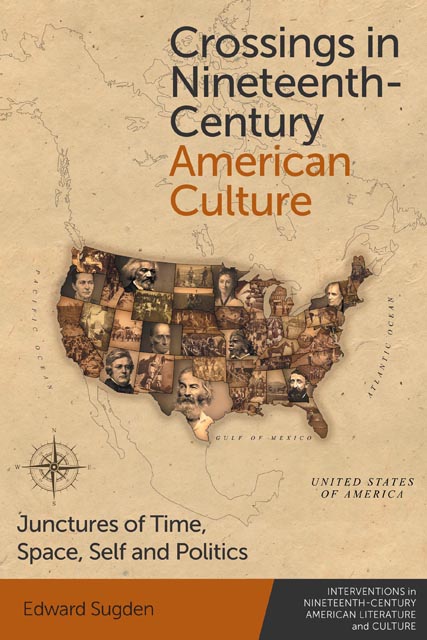1 - Material/Immaterial: Frederick Douglass and the ‘Moral Chemistry of the Universe’, 1855
Published online by Cambridge University Press: 26 November 2022
Summary
Throughout the last decade or so, scholars have revealed nineteenth-century American literature to be deeply embedded in ‘matter’ of one form or another. This scholarship goes by different names and uses different methods, but it tends to foreground the interpretive importance of literature's material dimensions, which encompass everything from paper and print production to animals, the environment and the economy. Such work differs notably from earlier analyses of literature's ‘contexts’, which the New Americanists tended to construe in a cultural sense to encompass a text's broader discursive milieu. Whether it focuses on objects, energy or empiricism itself, today's post-New Americanist scholarship places a more literal and pronounced emphasis on matter qua matter and the ways in which it conditions nineteenth-century writing.
This materialist scholarship has illuminated several aspects of nineteenthcentury American literature that had been either underemphasised or overlooked. It has demonstrated that many of the era's writers saw themselves as archivists and historians, actively seeking to record the world just as it slips away. It has also shown that many writers engaged with vitalism, physics and other methods of empirical inquiry; anticipated posthumanist insights into identity and the environment; and understood literature in terms of very specific genres, formats and media. I have learned a great deal from this work, but I think some caution is warranted. It is important to keep in mind that when it comes to literature, materiality and immateriality are inevitably entangled, and a great deal of what makes American literature what it is – what makes it distinctive and important – has to do with its immaterial qualities. It is certainly possible that, as Jonathan Senchyne aptly puts it, ‘many writers and readers … found meaning quite literally in the materiality of texts, in paper as well as on it’ (Senchyne 2020: ix). But it is difficult to square that account of literature's power with most writers’ actual motives and ambitions, or with the reception of works such as Moby-Dick, Uncle Tom's Cabin and Common Sense, which eclipse their material histories in spectacular ways. I also suspect it is difficult for many scholars to square that view of literature with their experiences in the classroom, or with their own experiences as readers.
- Type
- Chapter
- Information
- Crossings in Nineteenth-Century American CultureJunctures of Time, Space, Self and Politics, pp. 19 - 28Publisher: Edinburgh University PressPrint publication year: 2022



